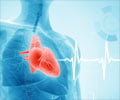Now, it is the era where one fights battle towards eternity and hence the researches over the same.Number of mortality and morbidity indicators preclude the existance of newer solutions to fight for the same.
As a result of such on going research , Dr. Simona Giampaoli, from the Istituto Superiore di Sanita, Rome, and colleagues from the MATISS Project have come out with a view that Heart rate appears to be a strong independent predictor of cardiovascular mortality, noncardiovascular mortality and all-cause mortality in middle-aged men.In their study , data were collected from 2533 men who were between 40 to 69 years of age , who were followed up over 4 to13 years.During such follow up there were 393 deaths.Of these deaths , 38% were due to cardiovascular diseases, 39% were from cancer, 5% from violence and 14% from other causes. For the remaining 4%, the cause of death was unknown.
Upon calculating the hazard ratio ,for each heart rate increment of 20 beats per minute , they found that for all-cause mortality the hazard ratio was 1.52, for cardiovascular disease mortality it was 1.63 and for noncardiovascular mortality the hazard ratio was 1.47. They also found that men with heart rates of more than 90 beats per minute were at an increased risk of all cause mortality(hazard ratio 2.67), cardiovascular mortality (hazard ratio 2.54) and for noncardiovascular mortality (hazard ratio 2.87).
Therefore on conclusion it was found that the heart rate represents the most important independent predictors of cardiovascular, noncardiovascular, and overall mortality in that, other risk factors being equal, deaths risks increase about 50% for each 20-beat-per-minute increment, and relative risks between extreme heart rate levels are more than 2-fold.











